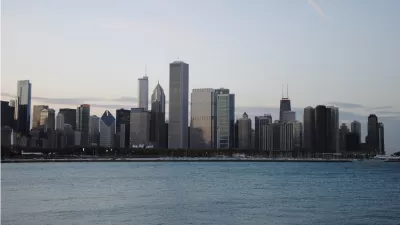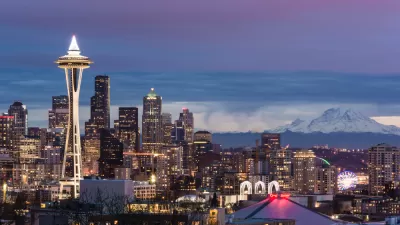Cities that have fun things to do -- so-called "consumption amenities" -- are more successful at attracting people and growing jobs, according to a recent report.
"In a paper published this month by the Federal Reserve Bank of Philadelphia, economists Gerald A. Carlino and Albert Saiz looked at 150 metropolitan areas around the United States and found hat those rich in what they called 'consumption amenities' - the things that make a city delightful, such as parks, historic sites, museums, and beaches - 'disproportionally attracted highly educated individuals and experienced faster housing price appreciation.'"
"In other words, urban growth and prosperity have less to do with transportation links and industrial infrastructure than the patterns that govern behavior at a social mixer: Beautiful and charming cities draw a crowd, while the featureless and unattractive wilt like wallflowers."
"Carlino and Saiz's paper could give policy makers a new way to think about the conditions necessary for economic growth. As they consider how to boost the economy, they should think not about the raw materials of business, but about what will bring together talented people in the same place. This suggests a different approach to stimulus spending - and, likely, stark assessments about where to spend it that will not make for popular politics."
Thanks to Creative Class Exchange
FULL STORY: Urban playground

Maui's Vacation Rental Debate Turns Ugly
Verbal attacks, misinformation campaigns and fistfights plague a high-stakes debate to convert thousands of vacation rentals into long-term housing.

Planetizen Federal Action Tracker
A weekly monitor of how Trump’s orders and actions are impacting planners and planning in America.

In Urban Planning, AI Prompting Could be the New Design Thinking
Creativity has long been key to great urban design. What if we see AI as our new creative partner?

King County Supportive Housing Program Offers Hope for Unhoused Residents
The county is taking a ‘Housing First’ approach that prioritizes getting people into housing, then offering wraparound supportive services.

Researchers Use AI to Get Clearer Picture of US Housing
Analysts are using artificial intelligence to supercharge their research by allowing them to comb through data faster. Though these AI tools can be error prone, they save time and housing researchers are optimistic about the future.

Making Shared Micromobility More Inclusive
Cities and shared mobility system operators can do more to include people with disabilities in planning and operations, per a new report.
Urban Design for Planners 1: Software Tools
This six-course series explores essential urban design concepts using open source software and equips planners with the tools they need to participate fully in the urban design process.
Planning for Universal Design
Learn the tools for implementing Universal Design in planning regulations.
planning NEXT
Appalachian Highlands Housing Partners
Mpact (founded as Rail~Volution)
City of Camden Redevelopment Agency
City of Astoria
City of Portland
City of Laramie




























